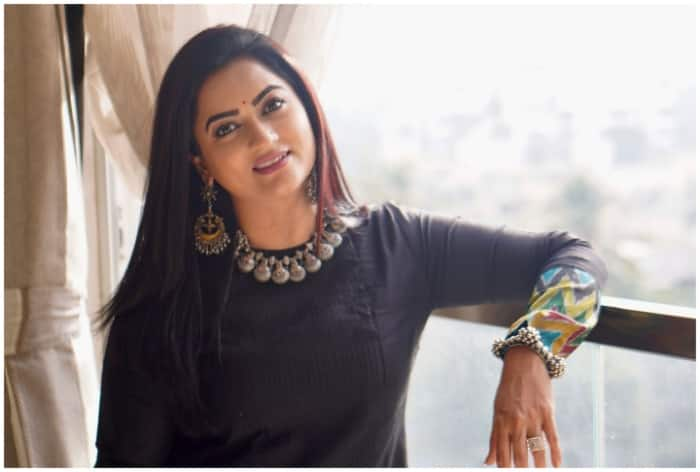Meet Sneha Desai, screenwriter for Kiran Rao’s satire drama ‘Laapataa Ladies’ who builds strong female roles
Sneha Desai made her film debut as a screenplay and dialogue writer with ‘Laapataa Ladies’. This author talks about building morally good characters, strong female roles, and more.
What the audience wants is a crucial pillar in making a good film. In this contemporary era where everyone is moving towards progress, cinema plays a crucial role in stimulating and shaping people’s mindset. In the final discussion, Kiran Rao’s directorial ‘Laapataa Ladies‘ has generated enormous appreciation for the acting and the storyline. In an exclusive conversation with India.com, the film’s screenplay and dialogue writer Sneha Desai talked about working in a female-driven film, building female characters in the industry and more.
Born in Mumbai, Sneha has years of experience in writing and theatre. She talked about the kind of content that should be made on TV, her principles and her experience working on the film alongside productions of Kiran Rao and Aamir Khan.
All about Sneha Desai, the woman writer who writes aspiring characters
She is also the writer behind the hit shows ‘Pushpa impossible’ And ‘Wagle Ki Duniya‘. As a writer, she has written numerous dramas and TV shows. With over 1200 shows on stage, Desai is not only a prolific writer but also an actor, gracing both the stage and screen with her talent. ‘Laapataa Ladies‘ is Sneha’s first film that he has worked on.
Speaking about working in the film, Sneha said that they focused on making a good story with logic and magic. “Aisa kuch bhi mat karo jo powerful dalna ho. Aisa nahi ki OTT hai toh gaali dalwa dijiye. Universal kahani likhye, je short hota hai. Film se badhkar kuch bhi nahi, koi start nhi kuch nhi,” Desai said in her briefing about the film.
“I gave a more commercial treatment, added more comedy and entertainment, which was well appreciated by Kiran and Aamir sir. For Aamir Khan’s production, we are asked not to introduce any character. It was clear that you aap nhi puchenge ki kiske liye likhi gayi hai, or dusri baat yeh ki yeh mat puchiye ki film OTT ke liye hai ya theater ke liye, aap film ko film tarah likhiye.”
Sneha Desai on creating female characters
Sneha has served a lot of time in Gujrati theater and shows and has good experience in the field. When we asked how female writers can portray better male characters than the other way around, she said, “I don’t really agree with this. Agar writer pratibha sampan hai versatile and umsme basic human emotion ki samajh hai toh part stree ka ho ya purush ka who bakhubi likhi hi sakte hai. It is not a gender-specific approach, but also basic human emotions and feelings, understanding that the character will be well written.”
She has worked in the television industry for many years and believes in working on projects that have certain good moral values and contribute to society. “Meri hamesha koshish rahi hai ki jis bhi project se mai associated ho usme kuch aisa ho ki kuch seekhne ko mile, jimse log thode evolved ho, thode ambitious or inspiring baatein kare. En mai aisa koi bhi kaam nhi karne chahungi jise dekh ke mera pariwar, you are just uncomfortable ho and that is a very personal opinion,’ she said.
“As a writer, I have imposed a moral obligation on myself ki aisa karo kuch acha karo and ki kuch morally good contribution ho characters ke through rahe,” the dialogue writer added.
When asked about her best work, Desai cheerfully said, “Pushpa Impossible is my best creation yet. It is a credit that bhi mai lungi kyunki iska maine develop kiya hai. The whole concept was mine, I am extremely proud of this character. Pushpa is a single mother who goes to school, gets A’se certificate, runs a tiffin service and these are the aspirational values I am talking about.”
Speaking about the content lines of television, Sneha believes that TV has more female leads since the demographics of the audience are so large. However, she also shared that more evolved content can be shown on television as audiences have evolved and are ready for new quality stories.
Sneha says it is the discipline she gained from working for long hours at a desk for TV scripts that is now helping her work get recognition. Explaining the challenges of a writer, she further added, “Woh jo 4 hours desk pe baithne ki meri discipline hai itna pakka hai ki ab bahane nhi nikalnte lines hi nikalti hain.”


